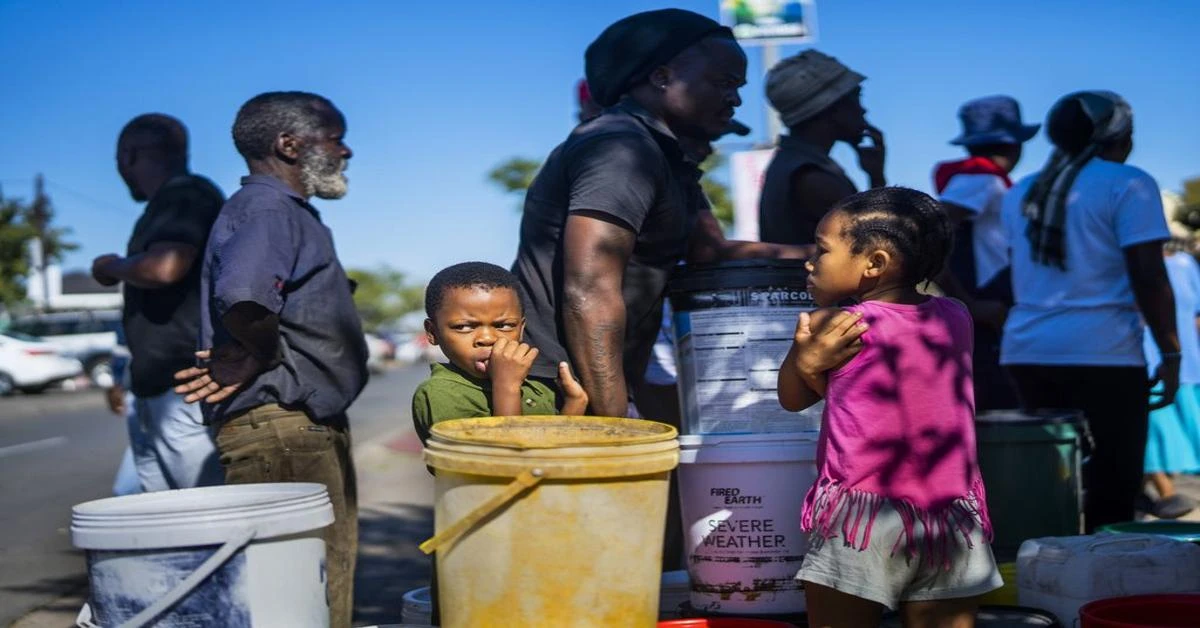South Africa’s largest city struggles with unprecedented water crisis

Johannesburg’s water crisis intensifies, affecting 6 million residents
Johannesburg, South Africa’s largest city, is facing a severe water crisis, leaving millions without regular access to water.
This unprecedented situation has escalated over the last two weeks, as residents from various socio-economic backgrounds queue for water deliveries amid dwindling reservoirs and collapsing water infrastructure.
The crisis, which impacts the city’s 6 million inhabitants, stems from intense heat and long-term neglect of water infrastructure.
Soweto resident Tsholofelo Moloi expressed the community’s distress by saying, “We are really struggling. We need to cook, and children must also attend school. We need water to wash their clothes. It’s very stressful.”
Authorities have warned of a potential total system failure if water consumption doesn’t decrease, which could result in reservoirs being shut down for replenishment. This alarming scenario suggests weeks without tap water during high demand.
The crisis extends beyond residential woes, threatening Johannesburg’s economic activities, particularly in the mining and manufacturing sectors. Rand Water, the region’s leading supplier, reports its reservoirs are at a precarious 30% capacity.
The situation has sparked political repercussions, with the upcoming national elections spotlighting the African National Congress’s infrastructure handling.
Johannesburg Mayor Kabelo Gwamanda acknowledged the crisis, stating, “It has always been an issue of overconsumption.”
Experts and activists trace the crisis to a decade of underinvestment in maintenance and infrastructure. For instance, Johannesburg Water loses 44% of its supply to leaks and theft, highlighting the need for urgent repairs and upgrades.
The water shortage in Johannesburg is not just a current inconvenience; it poses severe future risks.
The city’s water infrastructure dates back to the mining boom years, and only minimal upgrades are made annually.
Thus, the system is struggling to meet modern demands.
With national elections approaching, the response to this crisis will undoubtedly influence political outcomes and the future stability of Johannesburg’s essential services.
Source: Newsroom



